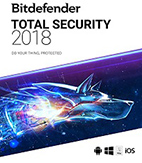Technology is embedded in almost everything we do today. Whether it is driving our car, making cell phone calls, shopping, banking, playing games or interacting socially online. Therefore, it is important to recognize that Cyber Identity Theft does not stand alone as a single crime. Anything done online can cause you or your family to become a victim of identity theft, i.e. information posted to Facebook, Tweets, Google +, etc.
More than 10 million Americans a year are victims of identity theft. The Identity Theft Resource Center surveyed victims of identity theft and reported their findings in a paper called The Aftermath Study. Below are statistics from this report and from The Identity Theft Resource Center, The Javelin Report, ID Theft Center.org, The FTC, and CBS News.
- 38-48% of victims find out about the identity theft within 3 months of it starting
- 9-18% of victims take 4 years or longer to discover that they are victims of identity theft
- 40% of business costs for individual cases of identity theft exceed $15,000. The Aberdeen Group has estimated that $221 billion a year is lost by businesses worldwide due to identity theft
- Victims lose an average of $1,820 to $14, 340 in wages dealing with their cases
- Victims spend an average of $851 to $1378 in expenses related to their case
- 47% of victims have trouble getting credit or a loan as a result of identity theft
- 19% of victims have higher credit rates and 16% have higher insurance rates because of identity theft
- 11% of victims say identity theft has a negative impact on their abilities to get jobs
- 70% of victims have trouble getting rid of (or never get rid of) negative information in their records
- 40% of victims experience stress in their family lives as a result of displaced anger and frustration over the identity theft
- 45% of victims feel denial or disbelief
- 85% of victims anger and rage
- 45% of victims feel defiled by the identity thief
- 42% of victims feel an inability to trust people because of the identity theft
- 60% of victims feel unprotected by the police
- More than one third of victims report that identity thieves committed cheek account fraud.
- 66% of victims’ personal information is used to open a new credit account in their name
- 28% of victims’ personal information is used to purchase cell phone service
- 12% of victims end up having warrants issued in their name for financial crimes committed by the identity thief
- The average out-of-pocket expense for victims increased 63 % from, $387 per incident in 2009 to $631 in 2010.
- Victims spend an average of 600 hours to recover from identity theft, sometimes over a period of years.
- Based on 600 hours times the indicated victim wages, this equals nearly $16,000 in lost potential or realized income.
- Every 79 seconds, a thief steals someone’s identity, opens accounts in the victim’s name, and goes on a buying spree.
- More than 50% of identity theft victims suffered credit card and other account fraud.
- New account fraud, where an ID thief opens up new accounts in your name, and other frauds were estimated to have victimized 3.23 million people.
- Roughly, 85% of victims discovered the crime due to an adverse situation – denied credit or employment, notification by police or collection agencies, receipt of credit cards or bills never ordered, etc. Only 15% found out through a positive action taken by a business group that verified a submitted application or a reported change of address.
- 28% of identity theft victims whose theft experience involved the misuse of an existing credit card said that their credit cards had either been lost or stolen.
A new survey, reported that most online consumers don’t take the proper precautions when making purchases online, which puts them at a higher risk of cyber-fraud. Firewalls and anti-virus protection are important features for protecting your online identity; however, you need to do much more to keep yourself and your family safe.
Here are additional statistics from the survey:
- While online, 45% of consumers are most concerned about identity theft, 41% about privacy, and 45% about computer viruses.
- 28% of consumers thought that their identities were secure on mobile devices, most are more aware that their mobile devices can also be vulnerable to cyber-crime.
- 85% of those polled knew they were being profiled via their internet activity.
- 85% also said they were aware they were being stalked by cyber-criminals.
Here are a few tips to help you protect your Identity online.
- Have a plan that includes privacy and identity protection (perhaps put a link to products here) computer system security software, browser protection, and a fraud alert service.
- Change your passwords regularly.
- Create passwords with upper case letters and and numbers.
- Buy software that will hide you IP address. Your IP address discloses your city, state, zip code, and the browser you’re using, which online thieves can use to obtain your identity.
- Encrypt any Wi-Fi service you’re using and never reveal personal information (passwords, bank account numbers, etc.) when on an unsecured Wi-Fi connection.
- Think twice before you post information to social networks – this information never goes away and is public information to anyone who wants to use it. Be careful about the innocuous information you share in social networks as it could reveal your passwords, i.e., the type of cars you like, hobbies, pet names, etc.
Is your identity protected? Are you monitoring your credit? If not register for one of these products to protect your valuable name. Don’t become a victim of Identity Theft.








